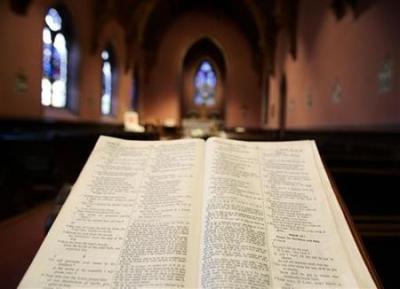Kevin DeYoung's 7 Points of Advice for Pastors Accused of Not Being 'Gospel-Centered' or 'Not Woke'

American pastors facing controversial political debates in their congregation, and criticism from some church members for not swinging one way or another, need to be aware of when the right time to speak out is, says Reformed evangelical theologian Kevin DeYoung.
DeYoung, who pastors Christ Covenant Church in Matthews, North Carolina, wrote a blog Tuesday on The Gospel Coalition addressed to pastors, noting that they face difficult questions when it comes to responding to controversial debates swirling around politics.
"When preachers are quickly criticized for saying too much (you're not Gospel-centered!) or saying too little (you're not woke!), it behooves us to think carefully about the relationship between pastoral ministry and politics," he positioned.
DeYoung offered seven pieces of advice, starting with allowing the Bible to set the agenda for weekly ministry.
"I love preaching through the Bible verse by verse. I'm not smart enough to decide what the congregation really needs to hear this week. So they're going to get John 5:1–18 this Sunday. Why? Because last week they got John 4:43–54. And in the evening they're going to get Exodus 24, because last Sunday was Exodus 23," he explained.
"That means I've talked in the last two months about abortion, social justice, and slavery, because that's what's been in Exodus. I want my people to expect that as a general rule the Bible sets the agenda, not my interests or what I think is relevant."
Secondly, he emphasized that the Gospel is the main thing, but not the only thing to consider in preaching.
"The Bible is a big book. It doesn't say everything about everything, and it doesn't say anything about some things, but it does say a lot about more than just a few things," he wrote.
Thirdly, DeYoung urged pastors to be aware of the difference between "the corporate church and the individual Christian," noting that the former should not always voice support for specific political matters, even if many congregants agree.
Next, he warned pastors to recognize that what they write online or promote on social media will reflect on their church, whether they want to or not.
"That means I keep more political convictions to myself than I otherwise would. I don't want people concluding from my online presence that Christ Covenant is really only a church for people who view economics like I do or the Supreme Court like I do or foreign affairs like I do," he said about what this means for himself.
"Does this mean I never enter the fray on hot button issues? Hardly. But it means I try not to do so unless I have explicit and direct biblical warrant for the critique I'm leveling or the position I'm advocating."
The Christ Covenant Church pastor continued by arguing that it is not a cop-out to say that the church does not have to address every important issue in society.
"This is common sense. I've seen denominational committees call the church to specific positions regarding the farm bill, Sudanese refugees, the Iraq War, socially screened retirement funds, immigration policy, minimum-wage increases, America's embargo of Cuba, the Palestinian-Israeli conflict, global economics, greenhouse gas emissions, social welfare, and taxation policies," he shared.
"While the church may rightly make broad statements about caring for the poor and the oppressed, and may even denounce specific cultural sins, the church should not be in the business of specifying which types of rifles Christians may and may not use (a real example) or which type of judicial philosophy Christians should want in a Supreme Court justice (another real example)."
On his sixth point, DeYoung called pastors to be consistent.
"Obviously, there is a lot of talk at present about social justice and a host of issues often associated with the left. This makes people on the right a bit nervous, and understandably so," he wrote.
"At the same time, the concerns of the right ring a little hollow when pastors pass out partisan voter guides, tweet about the Second Amendment, sing the 'Star Spangled Banner' in church, and then when anything about race or justice comes up, start harrumphing about politics in the church."
Finally, he pointed out that sometimes, a political issue is so huge that ministers simply have no choice but the address it.
"Think 9/11. Or riots in your city. Or the declaration of war. But these are the exceptions that prove the rule," he offered as examples.
He argued that there is "no exact formula for when you interrupt your sermon series, when you drop a blogging bomb, or when you add current events into your pastoral prayer. These things call for wisdom, not one-size-fits-all solutions."
DeYoung has talked about church and politics on a number of occasions, and in December 2010 listed 10 points for Christians to consider when it comes to political candidates when it seems that none of the choices are acceptable.





















